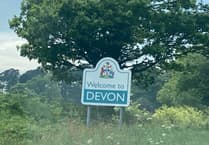An analysis of the response to the joint consultation on the draft proposal for the Devon and Torbay Combined County Authority (DT CCA) has now been published. And the findings make it clear that support for the scheme is far from universal.
In all 890 responses to the consultation were received, of which 99 were letters/emails from organisations and individuals, and 791 were completed online questionnaires.
The consultation, which took place between 12 February and 24 March 2024, posed questions regarding each of the seven elements of the draft proposal for the CCA, with respondents being asked to select from one of six tick-boxes when responding. Those were ‘Strongly Agree’, ‘Agree’, ‘Strongly Disagree’, ‘Disagree’, ‘Neither agree nor disagree’ and ‘Don’t know’.
In only one instance, namely whether the new Authority would help improve the efficiency and co-ordination of the region’s public transport, did an overall majority of respondents (52%) either agree or strongly agree.
But as well as simply ticking boxes, respondents were also offered the option of being able to add their own comments either in support of, or in opposition to, each of those seven proposals. And improving transport was one of only two instances where there were more positive and supportive comments (252) than those reacting negatively (240).
As for the other six questions, 43%of respondents either agreed or strongly agreed that we would be able to to maximise our economic potential through the new Authority, while 44% disagreed or strongly disagreed, and of those who chose to comment on this question 208 did so positively, 282 negatively.
Similarly, when asked to what extent would they would agree or disagree with the proposal to address our housing pressures through the new Authority, 46% agreed or strongly agreed, while 43% disagreed or strongly disagreed, with 219 positive and supportive comments being received compared to some 280 opposing the proposals.
Only 40% of respondents either agreed or strongly agreed that we would be able to meet our net zero ambitions through the new Authority. By comparison 43% disagreed or strongly disagreed; 190 respondent offered supportive comments, 280 concluded otherwise.
There was marginally greater support for the proposal to deliver investment in Devon and Torbay through the new Authority, with 46% either agreeing or strongly agreeing and 43% disagreeing or strongly disagreeing, but again there were more comments received opposing the proposal (276) than those supporting it (222).
More remarkably only 49% of respondents agreed or strongly agreed with the suggestion the new Authority would support industries that are important to Devon and Torbay, and in doing so create a strong and sustainable local economy. It is a shock that anybody might think it could have the opposite effect. Yet despite 238 supportive comments being received with only 149 opposed, the fact that as many as 39% of respondents disagreed or strongly disagreed with the idea the new Authority would have a positive economic impact is indicative that many remain unconvinced by what is on offer.
Such an impression is reinforced by the fact that only 36% of respondents agreed or strongly agreed with the proposed delivery arrangements – in other words how the new authority would go about its business, to whom it would be accountable, how it would be constituted, and who would be taking the decisions. By comparison 48% disagreed or strongly disagreed and, of the comments received, only 163 were supportive while 308 were opposed.
So, taken overall, only one of the seven proposals enjoyed the support or more than 50% of respondents, while with three of the remaining six only a marginally larger minority found themselves in agreement rather than disagreement. Conversely in three of the seven, more respondents objected than were in favour.
Consequently nobody can now claim there is overwhelming support for this new Authority. And it is perhaps interesting to note that even though respondents were asked to make it clear how strongly they agreed or disagreed with any of the proposals, the published consultation feedback report fails to include that breakdown.
Of course, only a conspiracy theorist would suggest the breakdown was omitted because few respondents strongly agreed with any of the proposals, certainly by comparison with the numbers who strongly disagreed. But what is noticeable is that while an overall total 1,815 comments were received from those opposing the proposals, only 1,492 were submitted in support.
More pertinently, many of the comments the report provides as supportive were heavily qualified. Take for example these two with respect to the delivery arrangements:
‘While I support the principle of the CCA with no directly elected Mayor, I remain concerned about how this will be funded going forward. Reference is made to capital funding to get things up and running, but there is very little detail as to how the costs of it being administered will be met going forward.’
and:
‘Although I support the proposals I am concerned the new structure will create another level of bureaucracy that will suck up resources.’
Or those that are supposedly in support of the idea the new Authority will support industries that are important to Devon and Torbay:
‘Will the CCA be able to use its voice to be an effective tool to attract new investment into public service delivery in a rural area or will it be expected to provide the investment?’
and:
‘There is not enough emphasis on the protection, growth and development of the agricultural industry which is the lifeblood of the South West.’
Some might suggest those comments should be better categorised as raising questions rather than positively offering support. Indeed, amongst the other examples provided elsewhere in the report, many comments not actually disagreeing with a proposal are counted as supportive.
Of course, one of the reasons why so many respondents were still posing questions is the fact residents were given no opportunity to obtain clarification about any of the issues being raised, despite Devon County Council Leader John Hart having told the Society in an email dated 16 February that ‘public consultation meetings (were) being held over the county area’. At the same time he also promised to say what the budgeted set-up costs of the CCA would be, its projected annual budget, and the number of full time staff or equivalent it intended to employ.
Yet no list of any meetings that residents could attend was ever published, the consultation feedback report lists none having taken place, and no answers to any of those financial questions were ever received. Perhaps that might be because, according to a representative from either Devon County Council or Torbay Council quoted by the report, they are yet to exist – the ‘budget for the CCA needs to be worked through once we have final set of proposals.’
Nor is there any certainty as to how the new Authority is to be financed. The report tells us ‘there is £1million of new money from Government to resource the CCA in its first year, including initial set up and early running costs. There will then be a discussion with Government about future running costs.’
Or as a representative from either Devon County Council or Torbay Council went on to admit: ‘We recognise that this is a high-level concept at the moment. We do not know what further powers and monies will be given to it in the future, so in that respect it is a bit of a leap of faith, but one we believe will benefit Devon and Torbay.’
Again, in response to whether there were any downsides to committing to a CCA structure and were no further government funding to be available, a representative for one of the two councils made the astonishing statement ‘the Labour Party manifesto is very similar to current Government in terms of devolution. Therefore we have confidence the CCA provides an opportunity for ongoing investment, conversations and dialogue with whoever forms the next Government.’
Planning, of course, is currently the responsibility of our District Councils. So this might well been of the reasons why many of the responses submitted by our town, parish and district councils quoted by the consultation feedback report are far from enthusiastic about the proposed CCA.
Yet despite such widespread lack of support for the new authority, despite the lack of any democratic mandate, and despite nobody yet knowing what it will actually end up costing, Cllr Hart seems determined to carry on regardless.
On Monday (April 22) the cabinet of Devon County Council is meeting to meet to rubber-stamp the proposal and send it forward to a meeting of the full Council the following week. There the Conservative majority will no doubt be whipped to ensure compliance, leaving the rest of us emasculated and powerless to prevent this arguably irresponsible ‘leap of faith’.
:: The South Hams Society AGM is at 6.30pm on Thursday April 25 at the Royal Seven Stars, Totnes. It will be followed by a discussion, “The benefits the Freeport will bring to the South Hams”. If you wish to attend please email [email protected]





Comments
This article has no comments yet. Be the first to leave a comment.